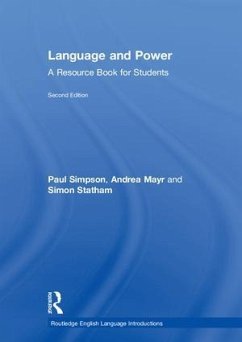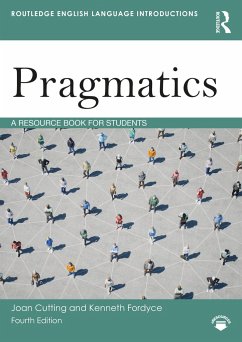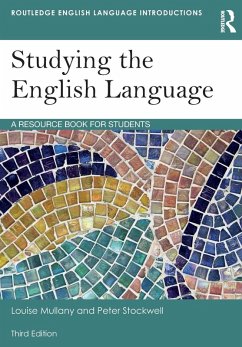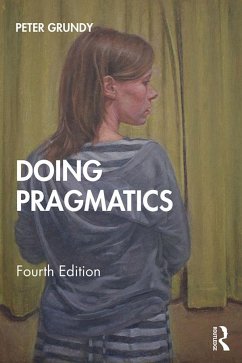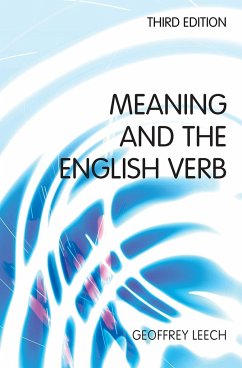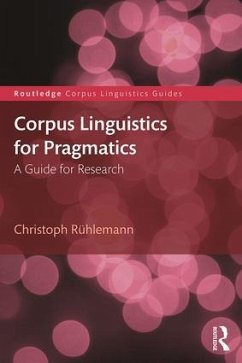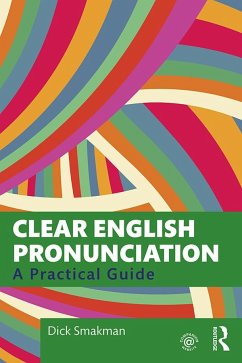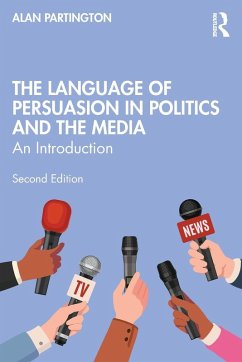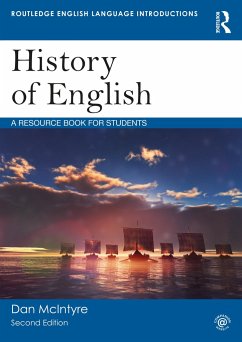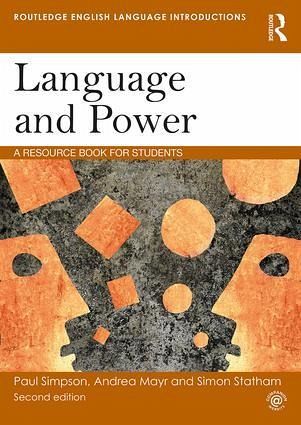
Language and Power
A Resource Book for Students
Versandkostenfrei!
Versandfertig in 1-2 Wochen
51,99 €
inkl. MwSt.
Weitere Ausgaben:

PAYBACK Punkte
26 °P sammeln!
Language and Power introduces the ways in which language intersects with the social and political expressions of power. It includes â traditionalâ topics in the study of language and power, such as race, gender and class, but also covers the more recent themes in critical linguistics.





